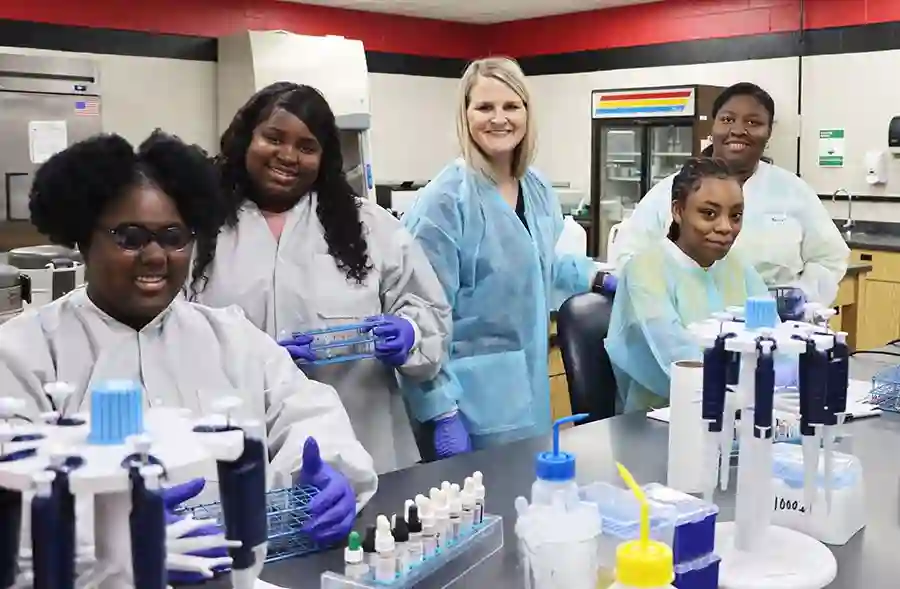If you want to work in the medical laboratory sciences but are unable to devote the time necessary to complete the necessary education, becoming a medical laboratory technician (MLT) may be the ideal solution for you. Medical technologists, doctors, or pathologists are the direct supervisors of medical laboratory technicians, also known as medical technicians, who operate in medical laboratories. MLTs frequently work the same shifts and complete many of the same tasks as medical technologists.
The duties of a medical lab technician and a medical technologist are quite similar. Some of the roles they play are:
- preparing samples for analysis
- operating lab equipment and performing blood, tissue, and fluid testing
- report and transmission of test results
- Blood units that cross-match
Utilizing instruments for laboratories and microscopy
If you want a career in the medical field but are unable to devote the necessary time to completing a four-year bachelor’s degree, becoming a Medical Laboratory Technician (MLT) may be the best option. The fact that the necessary education and training may be more easily obtained makes this career more alluring. A 2-year associate’s degree from a program accredited by the National Accrediting Agency for Clinical Laboratory Sciences (NAACLS) is required to work as a medical laboratory technician program in San Jose. A one-year certificate program may be available to those with degrees in a related field. Visit this website for a list of accredited MLT programs.
Currently, MLT has a promising employment future. According to the Bureau of Labor Statistics, there will be a 15% increase in MLT employment during the next ten years. The aging US population’s anticipated healthcare needs and the predicted decline in laboratory test prices are to blame for this significant demand for MLTs. The typical annual salary for medical laboratory technicians, which is around $36,000, is $56,040, according to the Bureau of Labor Statistics. MLTs typically work at medical facilities or in clinics.
A highly responsible person with laboratory technique training is required for the post. She informed me that there are at least 300,000 medical laboratory technicians and that over the coming years, the industry is anticipated to expand by at least 10%. For MLT careers, there are many options.
Currently, hospitals, clinics, blood banks, research and testing facilities, veteran’s hospitals, and even governmental organizations are hiring for the post. The pay scale can differ, especially depending on the region of the country where you live, but in general, the average MLT salary is often between $25,000 and $50,000. The range’s upper end is in the mid- to upper-$40,000 level. That would apply to a highly skilled individual operating in a larger facility.
She is choosing a respectable job path, in my opinion. Opportunities for employment as a medical laboratory technician appear to be excellent and strong for years to come. The need for a capable, powerful MLT seems to be recession-proof.
I do believe that this line of work does require a particular kind of person. one who can follow instructions and work well on their own. She has always excelled in math and science, and from what I gather, the Associates Degree includes a significant number of these classes.
Finding employment as a medical laboratory technician will come when she completes her Associates. I believe she is currently headed toward a successful career. We couldn’t be prouder of her, and based on the description she gave of the duties of an MLT, I believe she will be a fantastic one. I’m eager for her future. MedicallaboratoryTechnicianPrograms.com, Louis Zhan.
The ability to potentially continue your education to become a Medical Laboratory Scientist is another fantastic benefit of working as a laboratory technician. In order to continue their education and clinical training to become an MLS, many accredited colleges provide a bridge program for current MLTs. Those who need the security of a career in the near future and intend to further their education and responsibilities in the future may find this flexibility to be quite helpful. Many bridge programs are not full-time but rather provide the possibility of a future part-time career while taking the necessary courses to obtain the MLS certification.


